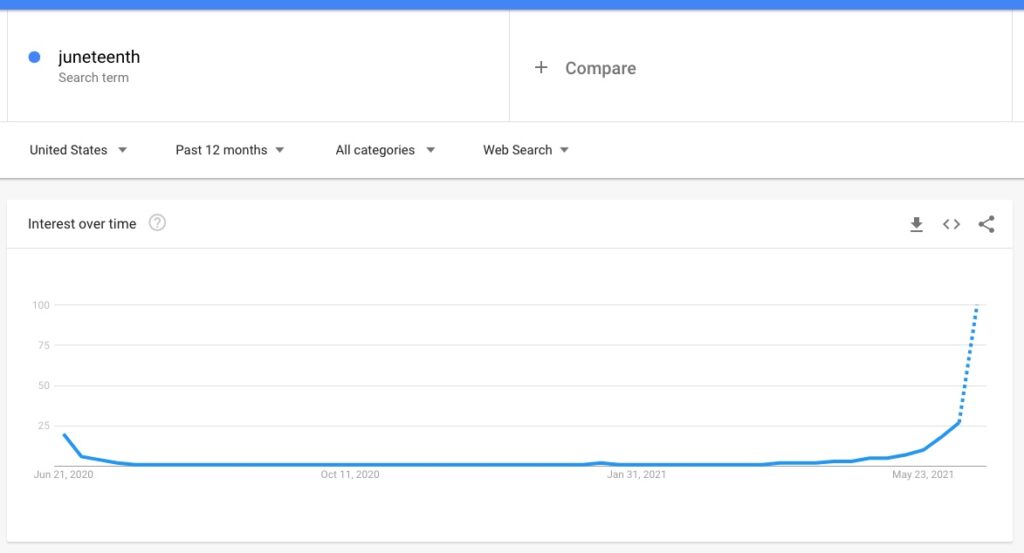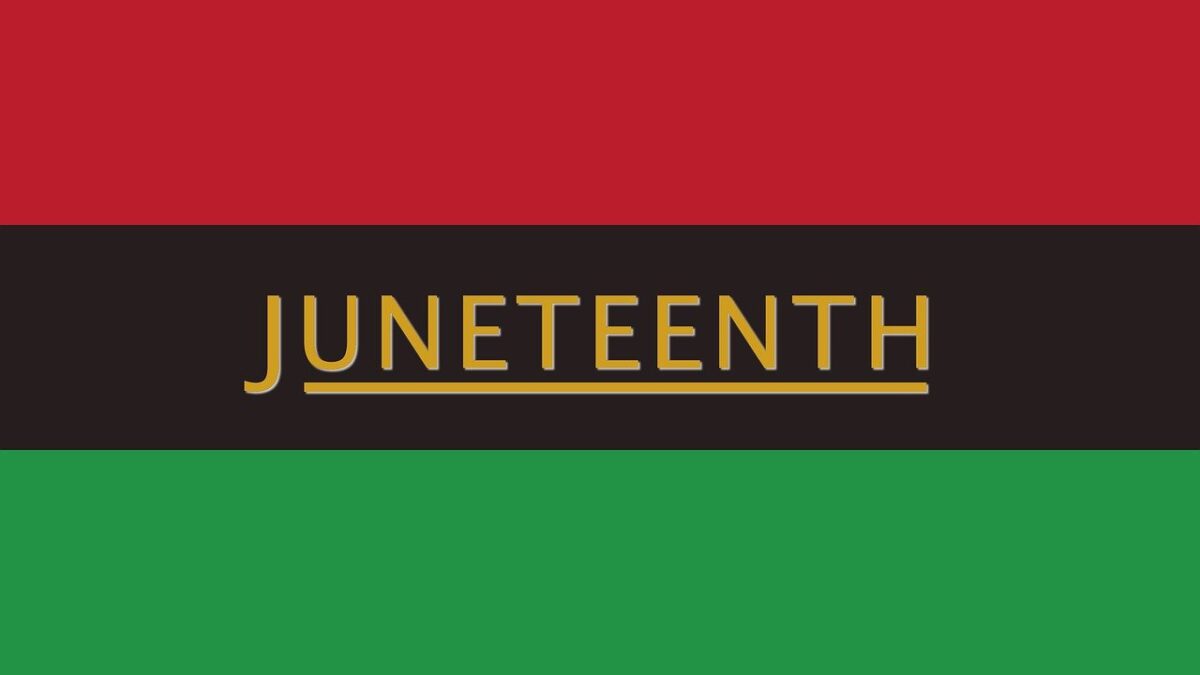As of this past Thursday (June 17th, 2021) when President Biden signed it into law, Juneteenth Day is our newest federal holiday.
Woah, really? If you’re on the back foot of current events like I am, this can come across as quite a surprise. Just to provide some context, here’s the current list of US federal holidays and when they were established:
- New Year’s Day (January 1st)—established 1870
- Inauguration Day (January 20th)—established 1957
- Martin Luther King Jr. Day (third Monday of January)—established 1983
- President’s Day (third Monday in February)—established 1879
- Memorial Day (last Monday in May)—established 1888
- Juneteenth National Independence Day (June 19th)—established 2021
- Independence Day (July 4th)—established 1870
- Labor Day (first Monday in September)—established 1894
- Indigenous Peoples/Columbus Day (second Monday in October)—established 1968
- Veterans Day (November 11th)—established 1938
- Thanksgiving Day (fourth Thursday in November)—established 1870
- Christmas Day (December 15th)—established 1870
History of Juneteenth and Why It Matters
Juneteenth Day, also known as Freedom Day, Jubilee Day, Liberation Day, or Emancipation Day (do you spot the trend?) has been a day of celebration recognizing African American emancipation in the United States ever since 1865.
It’s not a new thing, but to many of us who are not Black and living in the United States, chances are it might be.
Juneteenth (combining “June” and “19th”) started out in 1865 as the day of celebration when the announcement of the end of slavery finally reached Galveston, Texas (documented as one of the last places to be notified after the signing of the Emancipation Proclamation… a full TWO years later, by the way). In response, the communities of former slaves responded with dancing, feasting, prayer, song, and dance. They proudly put on their best clothes. They celebrated their heritage and their roots. They commemorated the day with different forms of cultural expression.
From there, Juneteenth became a day and a tradition that has widely been celebrated amongst the African American community, but ignored by the rest of the country.
What Does This Mean?
The announcement of making Juneteenth an official US federal holiday might feel a lot like “too little, too late.” But as I’ve been processing through the past year, I think God cares a whole lot about justice. And justice is usually accompanied by systemic change.
Racial justice has become a hot topic particularly in the past year or two. My own personal recollection is that much of it was kicked off by George Floyd’s death back on May 25th, 2020. If Google searches for “racial justice” is any indicator, a lot of the momentum for change in the public consciousness has died down since then, which is sad. I remember posting last June about how “fighting racism is a marathon, not a race.” Is making Juneteenth a national holiday even considered “racial justice?” Or, is it more like presenting the bare minimum needed to maintain image, like many companies jumped to in the aftermath of BLM and Stop AAPI Hate?


Should We Even Be Celebrating Juneteenth?
A hidden guilt in reaction to this news of a new national holiday might be: “well… that’s just another way that we (as non-Black people in America) are benefitting from the plight and history of Black people.”
But as Kamala Harris put it in her address, national holidays are a way that as a country, we decide that something is important and is worth pausing to recognize. I think that’s why I wanted to at least get this on the table to comment on.
As Asian Americans, we are no strangers to the concept of celebrating identities that we may not fully resonate with. For me, that means traditional Chinese festivals like the Lunar New Year or the Mid-Autumn festival are always “half-commemorated.” Both my parents immigrated and both of them identity as Chinese (as do I). Even so, we would only make a bigger deal out of celebrating those holidays if we were back in Taiwan, or around other family that did.
As a 2nd generation Chinese American, I also have plenty of catch up to do regarding learning about my own history and narrative in the United States. I don’t think there’s a need to be embarrassed or to “be an expert” when it comes to opening up conversation about racial issues like these.
As a Christian, I know that God is clear about desiring justice. He is also very clear about demanding rest, celebration, and remembrance. And so for that matter, racial narratives and histories are important. Is Juneteenth a chance not to tokenize but to commemorate together with our Black brothers and sisters?
Practicing Sabbath weekly is a lofty goal, I know. What about once a year, on June 19th?

Be First to Comment